On March 9, 2024, the Miss World 2023 pageant was held to choose a beauty queen once again. The crown went to Krystyna Pyszková of the Czech Republic. To honor this event, we decided to take a look at the history of the contest and find out how the jury’s approach to assessing women’s beauty has changed over the decades.
1950s: it all started with a scandal.

Kiki Håkansson (Sweden), Miss World 1951
In 1951, as part of the Festival of Britain, the Festival Bikini Contest was held, which journalists later named Miss World. This event became a scandal because in those days a bikini was considered indecent.
Swedish beauty Kikki Håkansson became the winner of this first pageant. And to this day, she remains the only winner to have received her crown while wearing a bikini. Later, the finalists would wear a one-piece swimsuit or evening gown to the awards ceremony.

Denise Perrier (France), Miss World 1953, and Marita Lindahl (Finland), Miss World 1957
Despite the 1951 bikini scandal, the contest founder Eric Morley was pleased with the public attention and decided to hold the pageant annually. His requirements for potential participants were as follows: single women without children aged 17 to 27.
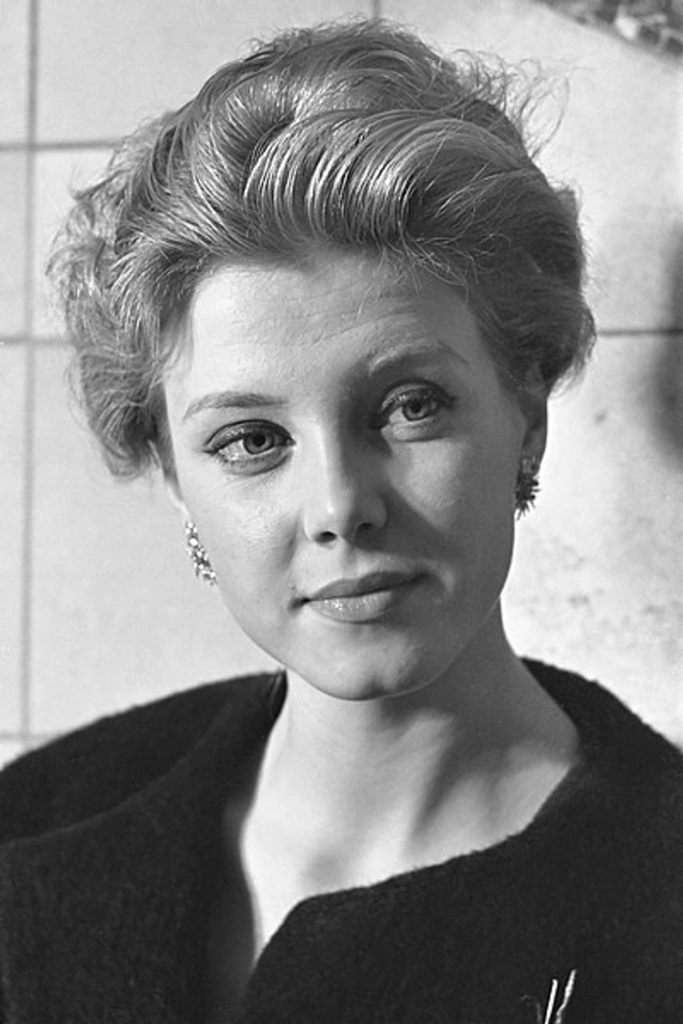
Corine Rottschäfer (Netherlands), Miss World 1959
In 1959, a major British television channel agreed to broadcast the pageant, thus making it even more popular. Corine Rottschäfer found herself in a delicate situation before the awarding ceremony when she discovered that her evening gown had holes in it. Another contestant lent Corine the dress and eventually finished third, while Corine became the winner.
1960s: Miss World is gaining momentum.

Katharina Lodders (Netherlands), Miss World 1962
In the 1960s, the Miss World pageant became one of the most watched television shows. The cash prize for the winner was increased from £500 to £2,500. In 1961, the requirements for contestants were also changed: the upper age limit was now 25 years old.
Katharina Lodders, who was crowned in 1962, addressed these criteria in her own way. On collecting the award, she said out loud, «I don’t think I’m the most beautiful girl in the world — I am the most beautiful girl here.»

Ann Sidney (Great Britain), Miss World 1964
In 1964, the winner was Ann Sidney, who later made a career in the movie industry. By the way, Morley introduced a new rule that same year: he forbade the mothers of contestants to accompany their daughters. The reason why was because the mother of one of the girls caused a lot of inconvenience to the organizers, getting involved in their work.
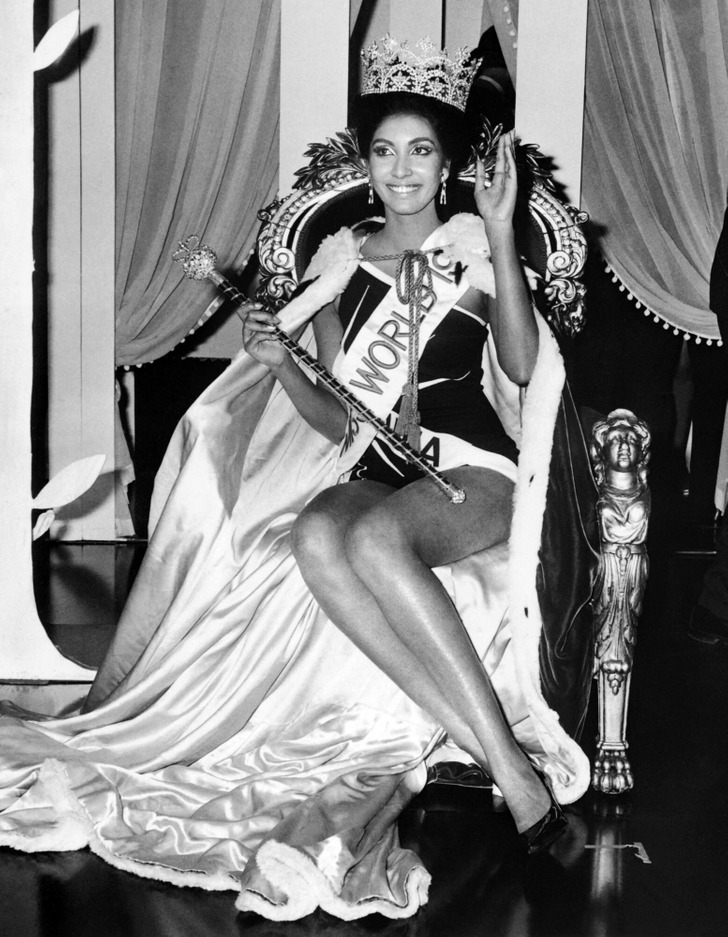
Reita Faria (India), Miss World 1966
In the late 1960s, the contest became even bigger. In 1966, Morley sent invitations to more than 70 countries, 66 of which were happy to respond. And in 1968, for the first time in the history of the event, a married girl was allowed to participate. In the 1970s, however, a strict criterion for the marital status of contestants was reintroduced: single only, period.
1970s: feminists change the essence of the pageant.
Jennifer Hosten (Grenada), Miss World 1970
The beginning of the decade was marked by a new scandal. In 1970, a week before the pageant, British feminists claimed that Miss World objectified women and threatened to interrupt the show. And they did it. When the event was in full swing, some female guests rose from their seats and began to blow whistles, jingle rattles and shout slogans. Later, the movie Misbehaviour starring Keira Knightley was based on these events.
In 1970, Jennifer Hosten won the crown. She became the first black woman to win it.
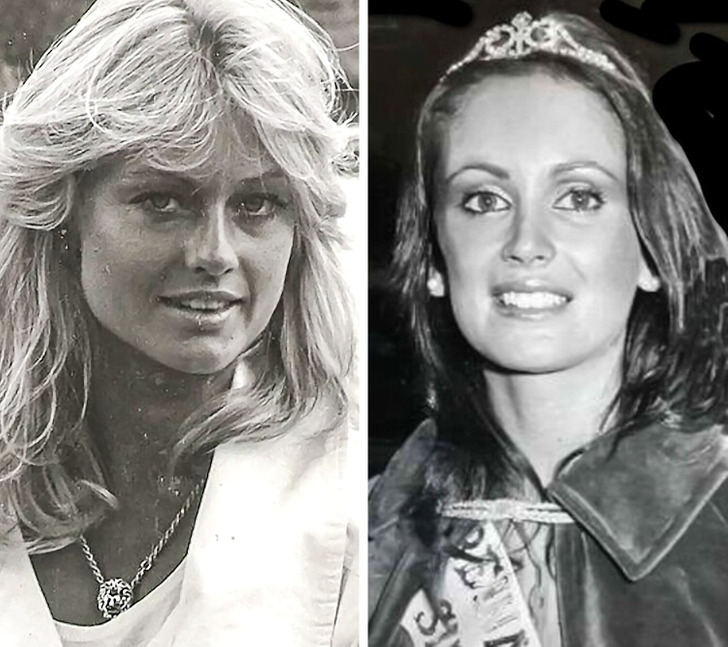
Marie Stävin (Sweden), Miss World 1977, and Silvana Suárez (Argentina), Miss World 1978
The conflict with feminists forced the organizers to think about the message the pageant was sending to the world. And in 1972, Eric Morley and his wife announced that the event would now be held under the slogan «Beauty With a Purpose.» The contestants were also required to present their charity projects to the jury.
1980s: «Beauty With a Purpose»
Mariasela Álvarez (Dominican Republic), Miss World 1982
In the 1980s, the slogan «Beauty With a Purpose» got another meaning: new tests of intelligence and personality were added to the contest program. In the eyes of the judges, the contestants’ personal qualities became as important as their looks.
Giselle Laronde (Trinidad and Tobago), Miss World 1986
In the second half of the decade, the contest became criticized again. The public in different countries didn’t like the fact that girls were judged only by representatives of Western countries. And in 1986, Morley decided to hold the preliminaries of the contest in Macau and give the Eastern judges the opportunity to select the contestants. The winner that year was Giselle Laronde from Trinidad and Tobago. This was the first time a representative of this country won the crown.
Ulla Weigerstorfer (Austria), Miss World 1987
And in 1987, the organizers ignored their own rule that allowed to participate girls aged only 17 to 25 and let a 26-year-old beauty to compete for the crown. Later, the upper age limit would be made 27 again.
1990s: crisis
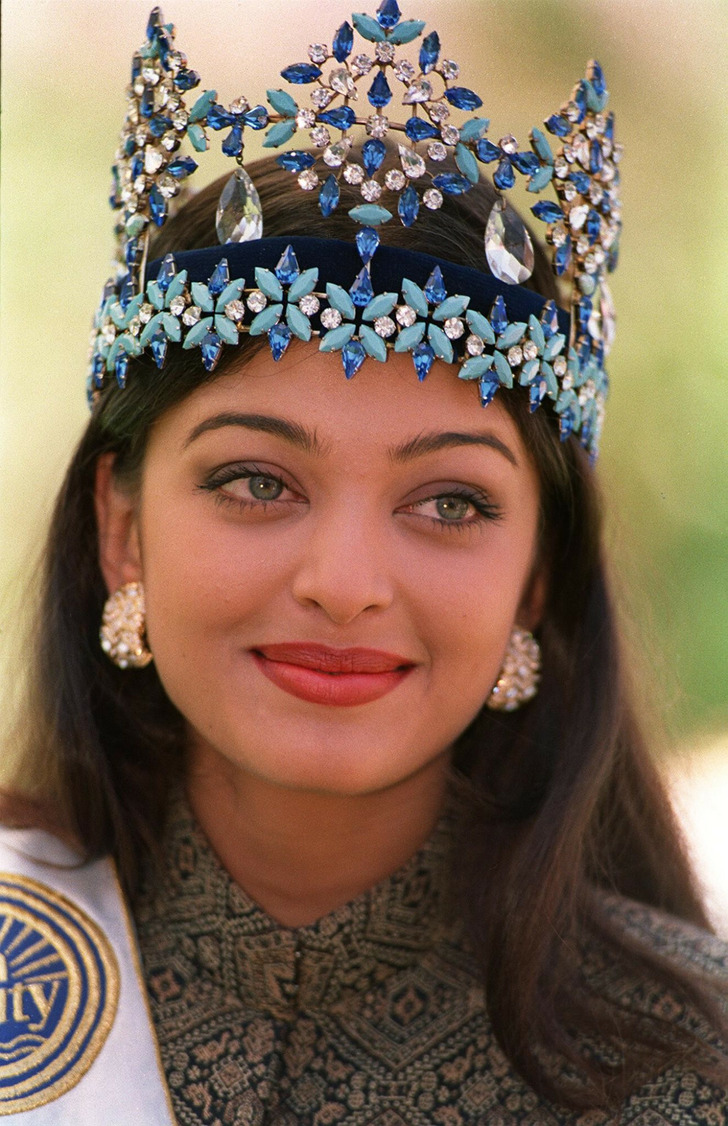
Aishwarya Rai (India), Miss World 1994
In the early 1990s, the popularity of the contest began to decline, and major TV channels stopped broadcasting it. But Morley wasn’t going to give up and managed to find ways to organize the contest at a lower cost.
Yukta Mookhey (India), Miss World 1999
In the second half of the decade, the organizers decided to gather a jury of representatives of different professions from all over the world in order to increase the interest of the audience. So, now beauties were judged by actors and actresses, athletes, magazine editors, and top models from different countries.
2000s: a woman takes the reins.
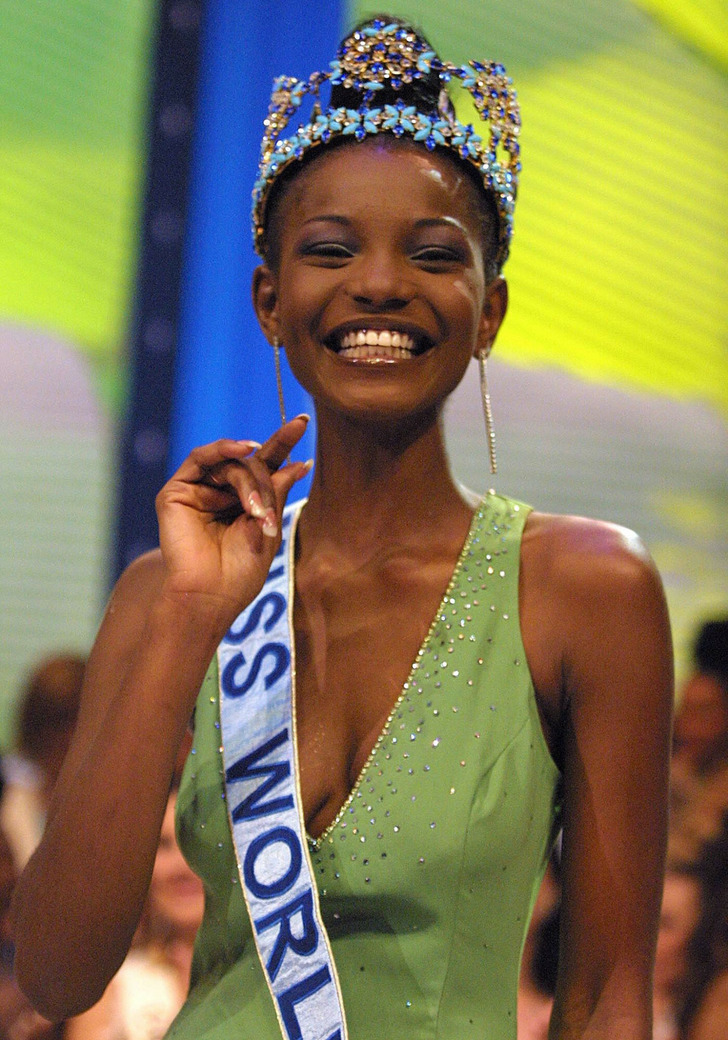
Agbani Darego (Nigeria), Miss World 2001
In 2000, Eric Morley passed away, so his wife Julia took on her husband’s work and decided to make some adjustments. For example, she called the pageant «stupid and horrible» and promised to make it «more positive» for women. She condemned the part of the show where girls had to first parade around in swimsuits and then give interviews about their life ambitions. «Not because I thought there was something wrong, horrible, and unnatural about swimsuits, but I thought you generally don’t feel comfortable if someone is interviewing you in a tux, and you are in a bathing suit,» Julia said.

Rosanna Davison (Ireland), Miss World 2003, and Kaiane Aldorino (Gibraltar), Miss World 2009
In 2004, Julia Morley surpassed her spouse by managing to gather a then record number of participating countries — 107 girls took part in the competition.
2010s: no swimsuits

Megan Young (Philippines), Miss World 2013
In 2013, the contestants traveled to Bali. It was the first time the event was held in Southeast Asia. Also, for the first time in the history of the contest, a girl from the Philippines, Megan Young, won the crown.

Manushi Chhillar (India), Miss World 2017
Julia Morley, who had previously voiced her discontent with overly revealing costumes of contestants,
decided to remove the swimsuit competition from the pageant in 2015. She said, «We are really not looking at her bottom. We are really listening to her speak.»
2020s: what’s next?

Karolina Bielawska (Poland), Miss World 2021
The first event of the new decade wasn’t really big. In 2022, the number of countries participating in the contest was the smallest since 2003 — only 97. The winner was Karolina Bielawska from Poland. Next time, the Miss World jury gathered in 2024 and crowned Krystyna Pyszková from the Czech Republic.

Krystyna Pyszková (Czech Republic), Miss World 2023
Since modern trends criticize various beauty standards, there is a possibility that the Miss World organizers will choose to stop using any selection criteria for future contestants, following the example of Miss Universe. In 2023, the latter removed the upper age limit for contestants. And since Julia Morley suggests that it is personality that should be evaluated, we are sure that changes in the contest are not long to wait.
Speaking about Miss Universe. Here’s what 16 Miss Universe winners look like now.
Preview photo credit Harry Pot / Nationaal Archief / Wikimedia Commons, CC BY-SA 3.0 NL DEED, Historia de la belleza / Wikimedia Commons, EAST NEWS, Rajanish Kakade / Associated Press / East News
Entitled Hotel Guest Mocked My Mom Who Works as a Maid, so She Taught Her Never to Mess with Housekeeping Again

Entitled Hotel Guest Mocked My Mom Who Works as a Maid, so She Taught Her Never to Mess with Housekeeping Again
When a devoted hotel maid is tormented by a wealthy and arrogant guest, she devises a plan that turns the tables in the most unexpected way. Instead of seeking revenge with anger, she orchestrates a quiet but powerful act of defiance that forces the cruel woman to face the bitter consequences of her actions.

Woman cleaning a hotel room | Source: Pexels
My mother has always been a source of inspiration for me. As a maid at a fancy local hotel, she takes immense pride in her work. She treats every room as if it were her own, ensuring everything is spotless and welcoming for the guests.
Recently, however, she had an encounter that tested her patience like never before. It all started on a seemingly ordinary day. My mother was assigned to clean room 256, which was occupied by a young woman named Ms. Johnson.

Woman in uniform beside hotel room bed | Source: Pexels
From the moment she stepped into the room, my mother could sense the woman’s dislike for her. Ms. Johnson lounged on the bed, scrolling through her phone, barely acknowledging my mother’s presence.
As my mother meticulously cleaned the room, making sure every surface was spotless, Ms. Johnson suddenly knocked her coffee cup off the table, sending dark liquid spilling onto the freshly mopped floor. She didn’t even flinch. Instead, she looked my mother straight in the eye and sneered, “Clean that up!”

Coffee mug falling | Source: Pexels
My mother’s heart sank. She had worked so hard to make the room perfect, only to see her efforts so carelessly undone. But she knew she couldn’t afford to lose her job. It provided her with a sense of independence and stability for our family.

A person vacuuming a rug | Source: Pexels
Swallowing her pride, she silently cleaned the floor again, all while feeling Ms. Johnson’s piercing gaze on her. As she worked, the woman laughed. The mocking giggle echoed through the room. “Well done for a maid. You didn’t even talk back to me,” she taunted, her voice dripping with sarcasm. “Tomorrow, I’ll come up with something more interesting for you.”

Woman standing near table with pastries | Source: Pexels
My mother finished her task, holding back tears. She knew showing any sign of distress would only give the woman more satisfaction. That night, as she recounted the story to me, I could see the hurt in her eyes. But there was also a spark of determination. She wasn’t going to let this entitled guest break her spirit.

Mother and daughter sitting at the table holding hands | Source: Pexels
The next day, my mother went to work with a plan. She knew Ms. Johnson would try to humiliate her again, but this time, she was ready. She was determined to show this woman that kindness and respect were not weaknesses and that underestimating the resolve of someone who works with dignity and pride was a grave mistake.

Woman holding a plastic basin with cleaning materials | Source: Pexels
Around mid-morning, my mother walked into room 256 with a steely determination. She had a plan. Sure enough, there she was, Ms. Johnson, reclining on the bed, her smirk already in place.
“Oh, look who’s back,” Ms. Johnson said, her voice dripping with disdain. “Let’s see what mess I can make for you today.” She reached for her coffee cup, a mischievous glint in her eyes.

Woman leaning on handrail in a hotel room | Source: Pexels
My mother kept her composure. She knew what to expect. Without a word, she began her cleaning routine, methodically and efficiently, refusing to rise to the bait. As she moved around the room, she noticed something important: Ms. Johnson’s laptop was left open on the table, the screen glowing with unattended work.
“Excuse me, ma’am,” my mother said in her most polite tone. “I need to dust the table. Would you mind closing your laptop?”

Person using phone with laptop on desk | Source: Pexels
Ms. Johnson huffed and rolled her eyes. “Fine,” she muttered, snapping the laptop shut and placing it to the side with an exaggerated sigh. “But hurry up. I have important work to do.”
“Of course, ma’am,” my mother replied, her voice steady.

Woman relaxing in a hotel room | Source: Pexels
“You’re slower than yesterday,” Ms. Johnson remarked, her voice dripping with sarcasm. “Do they not teach speed in maid school?” My mother ignored the jab, focusing on her task.
Ms. Johnson’s impatience was palpable, and she drummed her fingers on the bedside table. “Done yet?” Ms. Johnson snapped.

Woman tiding up a hotel room | Source: Pexels
“Almost, ma’am,” my mother replied calmly.
Just then, the door opened, and Mr. Ramirez, the hotel manager, appeared. He glanced around the room, his sharp eyes taking in the scene. “Good morning, Ms. Johnson,” he greeted her warmly.
“I trust everything is to your satisfaction?”

Hotel manager entering a room | Source: Pexels
Ms. Johnson scoffed. “It’s fine. Your maid here is just clumsy and slow.”
Mr. Ramirez frowned slightly. “I’m sorry to hear that. Our staff is trained to provide excellent service.”
“Well, maybe she needs more training,” Ms. Johnson said, casting a disdainful look at my mother.
Mr. Ramirez turned to my mother, concern evident in his eyes. “Mrs. Adams, is there a problem?”
My mother met his gaze with her calm and professional demeanor. “No, Mr. Ramirez. Everything is under control.”

A chambermaid holding a stack of towels | Source: Pexels
Mr. Ramirez nodded, though his concern lingered. “Ms. Johnson, I assure you, we will make sure your stay is as comfortable as possible.”
Ms. Johnson waved dismissively. “Just make sure she doesn’t break anything.”
Mr. Ramirez gave my mother an encouraging smile before leaving. As the door closed behind him, my mother felt a surge of quiet confidence. She was ready for whatever Ms. Johnson had in store next.

Woman fixing pillows on the bed | Source: Pexels
My mother continued her work, but she had one more trick up her sleeve. She knew Ms. Johnson would never learn unless she experienced a bit of discomfort herself.
As she finished cleaning, my mother subtly dropped a small, harmless but unpleasant-smelling packet under the bed. It was a trick she had learned from an old colleague, a mixture that would release a gradually intensifying odor over time. It wasn’t immediately noticeable, but within a few hours, it would become quite bothersome.

A tidy hotel room | Source: Pexels
“All done, ma’am,” my mother said standing up and gathering her cleaning supplies. “Have a pleasant day.”
The next morning, my mother arrived at work and was immediately greeted by the sight of Ms. Johnson in the lobby, furiously arguing with Mr. Ramirez. Her face was flushed with anger, and her voice carried through the lobby.

Man and woman standing in a hotel lobby | Source: Pexels’
“I can’t stay in that room! It smells awful! How can you expect guests to stay in such conditions?” Ms. Johnson was practically shouting, drawing the attention of other guests and staff members.
Mr. Ramirez, ever the professional, maintained his calm demeanor. “I’m very sorry to hear that, Ms. Johnson. We take such matters very seriously. We’ll investigate the cause of the smell immediately and move you to another room in the meantime.”

Two people standing at a hotel entrance | Source: Pexels
Ms. Johnson, still fuming, stormed off, her heels clicking sharply against the polished floor. Mr. Ramirez turned to my mother, who had been quietly watching the scene unfold.
“Mrs. Adams, could you please check Ms. Johnson’s room and see if you can find the source of the smell?” he asked, his voice calm but concerned. “Of course,” my mother replied, hiding a smile. She headed to room 256, her heart pounding with satisfaction.

A clean hotel room | Source: Unsplash
Inside the room, my mother quickly found the packet she had placed under the bed and discreetly removed it. She then opened the windows and turned on the fan, allowing fresh air to circulate and clear the odor. As she worked, she couldn’t help but feel a small surge of triumph. Ms. Johnson had finally tasted a bit of her own medicine.

Woman carrying a stack of towers | Source: Pexels’
As she left the room, she ran into Mr. Ramirez in the hallway. “Did you find the source of the smell?” he asked.
“Yes, Mr. Ramirez,” my mother replied. “It seems something had been left under the bed. I’ve removed it and aired out the room. It should be fine now.”
“Thank you, Mrs. Adams,” Mr. Ramirez said, a hint of relief in his voice. “You’ve done an excellent job, as always.”

Hotel worker doing room service | Source: Pexels
My mother nodded and continued with her day, knowing that sometimes, justice is served in the smallest of actions. But that wasn’t enough. My mom had one more lesson to teach Ms. Johnson.
The next day, she was assigned to help move Ms. Johnson’s belongings to another room. As usual, Mom did her job efficiently, ensuring every item was carefully placed in the new room.

Delivery man holding a cardboard box | Source: Pexels
Later that afternoon, a courier arrived with a package for room 256; Ms. Johnson’s previous room. Aware that Ms. Johnson had moved to room 312, Mom saw this as her chance to deliver a delayed but impactful lesson.
“Excuse me, sir,” she said to the courier, stepping forward with a polite smile. “The guest in room 256 has been moved to room 312. You can leave the package at the front desk, and I will ensure it gets to her.” The courier nodded, handing over the package. “Thank you. I appreciate it,” he said, already turning to leave.

A person holding a package | Source: Pexels
My mother took the package to the front desk and, with a smile, placed it in the corner behind some other deliveries, making sure it would not be found immediately.
The next day, Ms. Johnson was in a frenzy. She was preparing for her flight and an important event later that evening. Suddenly, she realized something crucial was missing. She frantically called the front desk, her voice shaking with panic.

An angry woman in aa grey tank top | Source: Pexels
“I had a package delivered to room 256. Where is it? It has my plane tickets and my dress for tonight’s event!” Ms. Johnson’s voice was a mix of anger and desperation.
The front desk clerk, taken aback by her intensity, quickly checked the records. After some confusion and a hurried search, they found the package tucked away in the corner. The clerk immediately called my mother to deliver it to Ms. Johnson’s new room, 312.

Receptionist making a phone call | Source: Pexels
My mother, with a calm and measured pace, made her way to the room. She knocked on Ms. Johnson’s door, her expression serene. The woman yanked the door open, her eyes wide with anxiety. “Where have you been? I’ve been waiting for that package!” she snapped.
“Here is your package, ma’am. It was delivered to the wrong room,” my mother said sweetly, holding out the package.

A person holding a brown box | Source: Pexels
Ms. Johnson snatched the package from her hands and ripped it open. Her face fell as she realized the delay had cost her dearly. The tickets were now useless, and she had no time to prepare for her event. Frustration and defeat were etched into her features. She could only muster a weak, “Thanks,” before slamming the door in my mother’s face.
Mom walked away, a slight smile playing on her lips. She knew she had given Ms. Johnson a taste of her own medicine, all without stepping outside the bounds of her duties. It was a quiet victory, but a deeply satisfying one.

Woman standing under a chandelier of a hotel room | Source: Pexels
When my mother told me about the incident later, I could see the relief in her eyes. “Sometimes,” she said, her voice soft but firm, “the best revenge is simply letting people experience the consequences of their own actions.”



Leave a Reply